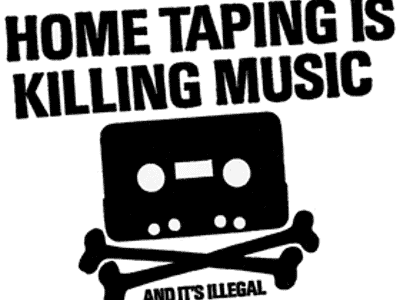
 The “notice and notice” aspect of Canada’s Copyright Modernization Act kicked into effect on January 1, legally requiring Internet service providers to send a warning notice on behalf of copyright holders to IP addresses suspected of downloading copyrighted material.
The “notice and notice” aspect of Canada’s Copyright Modernization Act kicked into effect on January 1, legally requiring Internet service providers to send a warning notice on behalf of copyright holders to IP addresses suspected of downloading copyrighted material.
The only difference between Wednesday and Thursday of this week for consumers is that their ISP is now legally required to act when a copyright holder asks them to.
The explicit aim of the “notice and notice” regime is “to discourage online copyright infringement by providing copyright owners with a tool to enforce their rights, while also respecting the interests and freedoms of users.”
While the government’s explanatory note on the regime said that “There are no financial implications to the Government associated with this Order,” it also noted, “Smaller ISPs expressed concern that the cost of complying with the notice and notice obligations without cost-recovery would be challenging for them.”
“What are they going to do about it? They’re welcome to come and fail again” Gottfrid Svartholm taunts regulators in a documentary about The Pirate Bay…
Reading between the lines there, yes, there will be costs associated with complying with the new directive for Internet service providers. And these costs will be passed along to the consumer.
Not a dime of that money will be going back to content creators, which seems a waste of both resources and good will. It will be money spent solely in the service of frightening people into obeying the law.
Presumably, the industry hasn’t been satisfied by revenues derived from Canada’s “private copying levy”, which has added 29 cents to every blank CD or DVD you’ve bought since the levy came into effect in 1997.
This final piece of the Copyright Modernization Law arrives a few months after a small ISP called Teksavvy was taken to court by Voltage Pictures, the production company responsible for The Hurt Locker and Dallas Buyers Club, the result of which was a court decision rendered on December 8 that ordered Voltage to pay Teksavvy’s legal and technical costs as a precondition to Teksavvy supplying the studio with information about copyright infringers.
Teksavvy has estimated those costs at $346,480.68, including almost $180,000 in legal fees. Voltage has responded, saying that it’s only willing to pay a maximum of $884.
Counsel for Voltage, James Zibarras, recently made a name for himself representing a police officer who intended to launch $1.25 million defamation lawsuit against YouTube because commenters mocked his behaviour in a video depicting his conduct towards a G20 protestor.
The purpose of the legislation appears to be to educate (or frighten, depending on how you feel about copyright) the public, without attaching any serious consequences to illegal behaviour.
We won’t know the consequences of the Teksavvy case until the two parties are forced into a compromise, but it will be worth keeping an eye on.
Rather than learning from the counterproductive examples set by the music industry in suing individuals for downloading MP3s, as in the case of Jammie Thomas-Rasset of Minnesota who was fined $1.9 million in 2009 for downloading 24 MP3s ($80,000 each), the movie industry appears set to repeat the almost dead music industry’s mistakes.
The record industry, when presented with the threat of Napster back in the day, responded by shutting down the illegal platform and then suing individuals, rather than responding to the new technology by adopting its model (until Steve Jobs came along and launched iTunes, part of the ongoing Apple renaissance).
What Internet users might notice out of this news is that “notice and notice” requires ISPs to send a warning to downloaders, not that their Internet is going to be cut off unless they stop or that they’re being taken to court.
And since the maximum penalty that can be levied against someone downloading for non-commercial purposes is $5,000, copyright holders might think twice about launching a lawsuit, the cost of which will be easily dwarfed by whatever money they might hope to recoup.
The purpose of the legislation appears to be to educate (or frighten, depending on how you feel about copyright) the public, without attaching any serious consequences to illegal behaviour.
The end result of the new legislation will be to add a new layer of bureaucracy to ISPs, whose job it will be to send out warnings when asked to do so by copyright holders, to be paid for by all Internet subscribers.
But if data provided by Rogers in 2011 is anything to go by, most Canadians are law-abiding citizens who will stop illegal behaviour when warned against it. After making it clear that 95% of their user base are not downloading anything illegally, they demonstrated that 67% of ingfringers who did receive a warning notice stopped their behaviour and that 89% of those who received a second notice stopped.
So how many people are we talking about here?
The only way for copyright holders to make any money out of this would be to launch a class action suit against a group of identified IP addresses, or to merely send warning notices to the effect of “Pay us $3,000, or we’ll sue you for $5,000.” Neither tactic seems worth pursuing, given the sheer cost of manpower involved.
But rather than investing in one of various forms of digital rights management (DRM) technology, the studios seem intent on spreading fear in the guise of “education”, which is certainly cheaper than just spending the money on ways to protect their product out of the gate.
The end result of the new legislation will be to add a new layer of bureaucracy to ISPs, whose job it will be to send out warnings when asked to do so by copyright holders, to be paid for by all Internet subscribers.
Should you just pay the fine if you get one in the mail? No, says at least one expert.
Meghan Sali, campaigns coordinator Open Media says the letter is probably from a “copyright troll” who is looking to scare you into paying and likely doesn’t have the weight of the law behind them.
“Copyright trolls actually don’t want you to go to court,” she told the CBC recently. “They know it’s difficult to win and what they’d like you to do is settle outside of court and that’s really where this bullying behaviour comes in,” says Sali.
Sali says there is a real need for clarification of Canada’s laws when it comes to such notices.
“There need to be some clear and simple rules put into the Industry Canada’s guidelines about what type of information can be included in the notice. If there aren’t any rules around what can go into these notices, Canadians are unsure about whether or not this is actually a real threat to them and that is where ultimately the confusion comes in,” she said.
Meanwhile, the Canadian Independent Music Association has condemned the new “notice and notice” aspect of the Copyright Modernization Act as toothless, favouring “a much stronger and more actionable enforcement mechanism through the requirement of a take-down order.”

Basically, if a copyright holder were to see its content being distributed online without compensation, they would be able to issue an enforceable take-down notice.
For serious downloaders, the new system is likely to benefit a handful of VPNs (virtual private networks), designed to mask their IP address. But using a VPN won’t prevent your ISP from noticing the shape of traffic around your address, the most telltale giveaway that uploads and downloads are happening chez vous.
As things stand, the current legislation pleases no one: not copyright holders, not ISPs, not content creators. Downloaders of illegal content, though, are laughing.
Comment
Leave a Reply
You must be logged in to post a comment.




 Share
Share Tweet
Tweet Share
Share




To be honest, I don’t give a fuck about any laws. I don’t go around hurting anyone and if my hard earned money is staying out of the pockets of some selfish, greedy already rich executive then good. That being said, if you think it’s me who keeps money out of the hands of the artists and the staff then you are very delusional indeed, that folly is on the executives who don’t provide fair compensation to their employees. It has nothing to do with me since once the money in their hands it’s literally out of mine.
Is downloading music from Youtube illegal? It”s sure is easy to access Youtube and very enjoyable to listen or watch music clips!
But these laws are not flawless. Many people use Canada VPN like Ivacy to be anonymous while downloading illegal torrents.
Friends, I am using Ivacy VPN which is good for online security and give the internet freedom to access block content.